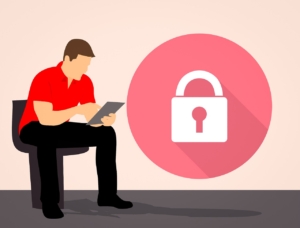Gartner Survey Explains Why Cyber Security Employee Training Fails
Sobering data from Gartner illustrates the shortcomings of cyber security employee training. The company predicts that more than half of cyber attacks by 2025 will result from :lack of talent or human failure.”
 This is in spite of ongoing efforts by businesses to provide employee training on cyber security. What stands out is the reason why that training fails.
This is in spite of ongoing efforts by businesses to provide employee training on cyber security. What stands out is the reason why that training fails.
According to their survey of 1,310 employees in mid 2022, “69% of employees have bypassed their organization’s cybersecurity guidance in the past 12 months.” More concerning, 74% said the would ignore cyber security practices “to achieve a business objective.”
The problem is clear: employees may know an organization’s rules for cyber security, but they willingly ignore those rules to get their jobs done. As long as this situation persists, cyber criminals will have the advantage they need to carry out attacks.
Cyber Security Employee Training Must Be Personal and Ethical
Every organization has a to-do list for compliance and a general set of employee rules. Most employees know they cannot treat others unfairly because of their background, race or identity, that they cannot steal from the company coffer and that they have a set time for lunch and breaks. Many employees bend these rules at times, while some bend them pathologically.
When cyber security becomes just another set of flexible company rules, disaster follows. The employee who takes an extra half hour for lunch only harms productivity in the short term. The employee who denies promotions to certain co-workers may trigger a lawsuit. The employee who shares passwords with teammates risks a costly data breach or an intrusion that takes all systems offline.
In all of these cases, organizations tend to train on the whats instead of the whys. Employees learn that they can be suspended or terminated for long lunch breaks, then see if that rule is actually enforced. The same applies to discrimination and cyber security. Employees may understand the consequences of breaking rules, but if they see co-workers getting away with things, or they consider some rules flexible, the training they received is useless.
It should be no secret to organizational leaders that employees behave very differently in their private lives. Most people would not brush off a friend or discriminate against a family member, and they tend to take great care with their personal cyber security. They are motivated to do this because they face lasting, personal repercussions in valuable relationships if they behave selfishly.
Leaders expect this behavior to carry over on the job, but Gartner’s data disputes that belief, painting cyber security as just another obstacle employees try to overcome. This occurs because most cyber security employee training, like other forms of employee training, lays out facts and broad hypothetical situations without asking the question that would really motivate employees: What would your friends and family think if you were responsible for a major cyber security attack?
The answer to that question is the key to effective employee cyber security training. Most people would be horrified and ashamed if their actions caused harm to a friend or family member. They would be similarly ashamed and horrified to have to tell people that they were involved in a cyber attack that made headlines. Those emotions provide a powerful incentive to follow cyber security rules, but they are absent from nearly all of the training programs available. Training based on ethics and personal attitudes toward responsibility delivers better results, because it connects with the protective instincts people practice in their personal lives.
Choose Training That Works
The CSI Protection Certification cyber security employee training program created by Protect Now changes employee attitudes toward security by tapping into their personal desire for safety. Created by cyber security speaker and author Robert Siciliano, this program is empowering and entertaining, and it now qualifies for CE credits for real estate professionals in many states. The program is available via in-person seminars, virtual seminars or through a library of eLearning modules. To learn more, contact us online or call us at 1-800-658-8311.


























